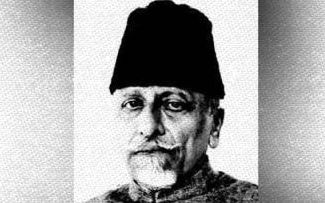GREENING THE FUTURE
Dr. FAAZIL BASHIR RATHER
As the world faces series of severe, cascading and interlinked reinforcing crises, from climate change to biodiversity loss and pollution, which threatens the very survival of our kind. At one time, our Mother Earth was in balance. The air was clean, the water was pure and mankind’s consumption of natural resources was no more exceeding than what could be easily replenished. But now, our unsustainable activities are deteriorating the natural world at an unprecedented rate and the planet is heading for an impending catastrophe. With the impacts of the COVID‑19 pandemic still reverberating worldwide, the ongoing geopolitical confrontations ignited a new crisis, disrupting food and energy markets and escalating food insecurity and malnutrition.
As 2023 begins, we have seen surging inflation followed by triggering global cost-of-living crisis further pushing already vulnerable societies into further poverty and economic hardship. At the same time, the climate crisis continued to impose a heavy toll, with heat waves, wildfires, avalanches, floods, earthquakes and hurricanes inflicting massive economic damages and generating humanitarian crises worldwide. With seven years remaining to achieve 2030 Agenda, the actions to meet the SDGs is not advancing nearly fast enough and the world is moving in the wrong direction. We need to understand where we are and where we are heading towards and to overcome current challenges, digital transformation has become a key area of interest for policy actors and other stakeholders, as it can offer ground-breaking opportunities to protect the environment and overall planetary health.
Before we nose-dive deeper into the opportunities and vulnerabilities of a rapidly digitalizing world, let us take a moment to look into the pages from our history that sapiens evolve from hunter gatherers to smart cities, smart homes and driverless smart cars to present-day neuralink smart humans. Now it appears that Frankenstein’s prophecy is coming true right from cyborgs to nano-bots. Digital revolution is changing the way we interact with each other and with governments and businesses. We are witnessing a transformative cultural shift that impacts our lives and environment on a much deeper levels. It’s a paradigm shift from how we used to work to how we work now (using e-Office), how we play (extended/ virtual reality), how we pay (online payment-gateways), how we connect (video conferencing), how we learn (MOOCs), how we consume (online groceries/ food delivery systems) and assesses services (telemedicine). We need to be bold and innovative to ensure that this transformation benefits everyone and is gentle on our environment.
Digital transformation is not just a buzzword and has become a key consideration for global leadership. This is a pivotal moment for our world and is transforming global social, economic and environmental structures faster than ever witnessed in human history. As digital technology evolves, people can perform tasks faster and generate innovative ideas for using technology in new ways. Choice is ours; it’s time to act and adopt low-carbon, resilient and inclusive development pathways that will reduce emissions, conserve natural resources and thereby leading to greener economies and a better future for generation to come. The future of humanity and the health of our planet depend on how we drive this transformation in a manner that helps build a healthier, safer, cleaner and more equitable future rather than one of exacerbated environmental degradation, inequality and social division.
Digitalization is shaping our lives through the opportunities and risks of algorithm-based decision-making processes. By combining digital innovation with sustainability principles, we can achieve a more equitable, resilient, and sustainable world. It helps in optimizing the use of resources like, energy, water and raw materials and reduces waste by improving operational efficiency and automating manual processes. Digital technologies can enable remote work and virtual collaboration by reducing the need for travel and associated emissions thereby helping in implementation of circular economy, where waste is minimized and resources are reused and recycled.
Digital transformation has the potential to revolutionize the way we approach sustainability. From reducing waste to optimizing resource use, digital transformation offers a unique opportunity to address the pressing environmental and social challenges of our time. Whether it’s through the adoption of smart cities, the digitization of supply chains or the development of new clean technologies, the impact of digital transformation on sustainability is far-reaching and profound. It’s high time to work together to harness the power of digital technologies, viz., artificial intelligence (AI), SMART systems, IoTs, edge/cloud computing, virtual reality (VR) and metaverse, digital currencies, online trading, industry 4.0, smart cities, e-Agriculture, blockchain, machine learning, etc, so we may create a more efficient and sustainable green future.
Digital transformation is need of the hour and under the visionary and dynamic leadership of our Hon’ble Prime Minister, India has made remarkable progress in the field of sustainable digitalization. ‘Digital India’ a flagship initiative is the world’s largest programme for digital empowerment of citizens, which is based on credo of “Sabka-Saath, Sabka-Vikas, Sabka-Prayas”. In this digital era, there are 1.10 billion cellular mobile connections active in our country, we are being recognized as the second largest smart-phone users in the world and internet penetration stood at 48.70% (692 million internet users), we enjoy world’s largest coverage of digital identity program (1.336 billion aadhaar generated).
There are 22098 services on UMANG platform, digital payments have now become a part of life for every citizen (4.52 billion monthly transactions using UPI), ensured e-learning programs under digital literacy initiatives (DISHA, SWAYAM), together we showed resilience in fighting against COVID-19 pandemic (COWIN, Aarogya Setu), we are shifting to digital agriculture (e-NAM, m4agri, mkisan) and have become digitally empowered society (storing 5.10 billion documents using Digilocker), successfully ensured inclusive digital transformation (issued 571.39 lakh digital life certificates on Jeevan Praman for pensioners) and providing one stop e-commerce portal (GeM) for procurement of goods and services, etc are some of the initiatives under Digital India. These initiatives exemplified India’s enhanced global role in achieving 2030 Agenda for Sustainable Development.
Sustainable Digitalization is reshaping public and private services with greater efficiency and effectiveness, optimizing digital transformation for sustainable development is something that no country can achieve on its own. Digital cooperation is a multi-stakeholder effort and India’s G20 Presidency offers a unique opportunity to steer the 2030 Agenda through global digital cooperation. While governments remain at the centre, the involvement of the private sector, technology companies, civil society and other stakeholders is essential. To put the world on track to sustainability requires concerted action on a global scale. Together, For a Digital and Green Future, world leaders must ensure global connectivity; promote digital inclusion, capacity building, digital cooperation and environmental sustainability. The potential benefits are unprecedented, from saving our resources to reducing our impact on environment, from creating a sustainable economy to building a better world for all so that no one is left behind.
(Dr. Faazil Bashir Rather (BVSc & AH, MVSc, PG Dip Animal Welfare) is Technical Officer (Poultry), Directorate of Animal Husbandry Kashmir, Red Cross Road Gaw Kadal. Email: [email protected])








